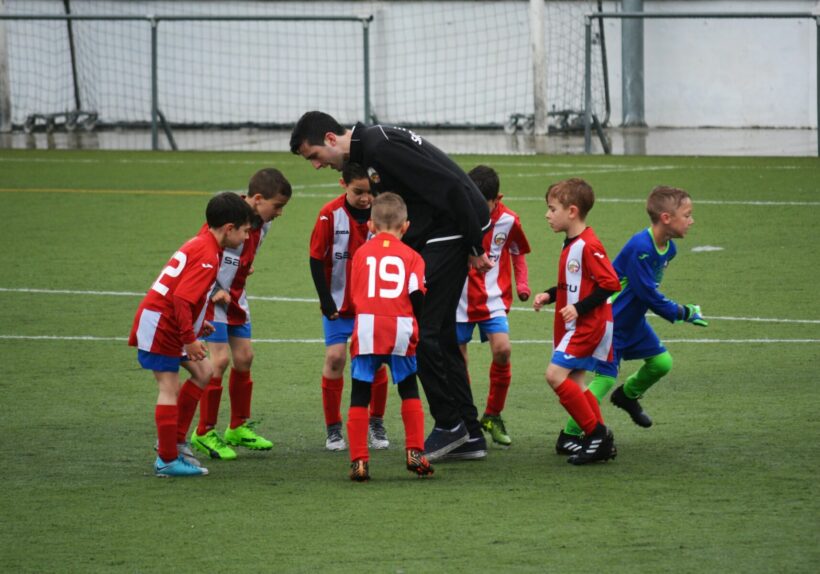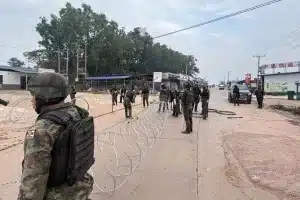What are the pros and cons of studying in an international school in Thailand?

As an expat parent, one of the main concerns when moving to Thailand is ensuring your children get the best education they need. There is a wide range of options available, but one of the first decisions you must make is between local public schools and private international schools. So, to help make your decision easier when it comes to choosing a local or international school in Thailand, here are some pros and cons.
Pros of studying in an international school in Thailand
Prestigious international curriculum

One of the pros of choosing an international school is the curriculum. The local curriculum might not be recognised by universities worldwide. In contrast, the curriculum used in international schools is usually accredited and internationally recognised. A globally recognised diploma, such as the American High School Diploma, British A-Levels, or the International Baccalaureate (IB) Diploma, puts students in a much stronger position to attend any university of their choice. This means that children at international schools will find it easier to pursue further education at the international level. Many international schools around Thailand have a solid track record of university acceptance around the world. In addition to universities, employers also view these diplomas very favourably.
A globally recognised diploma is not the only advantage of an international curriculum. The curriculum also provides more provisions for children, allowing them to be more ready to confront the challenges of an increasingly advanced future and adapt to an ever-changing world. Moreover, an international curriculum makes the process of transferring to a new school in Thailand easier. For example, if you come from the UK, enrolling in a British school means your children don’t have to adjust to a new educational system. They can just continue where they left off.
Well-equipped facilities and smaller class size

With better funding and bigger budgets, international schools in Thailand offer state-of-the-art facilities that students can enjoy. The facilities are typically incorporated into the educational process as a whole, ensuring that students have better opportunities outside of the classroom to identify and develop their passions and skill sets.
Aside from the facilities, international schools usually keep their classroom size small. Therefore, each student can receive individual focus and personalised attention from their teachers.
International environment

The multicultural environment is another great advantage of studying in an international school. Your children can meet friends from numerous different countries, allowing them to get to know other cultures. This will help them learn how to work with others who have different characteristics, traditions, and cultural norms. Additionally, they can develop tolerance, empathy, mutual respect, and understanding of others. Moreover, a multicultural environment also gives students a chance to socialise with others who share the same experience of adjusting to life in a new country.
In addition to their peers, students will also have access to a global perspective because most international schools hire faculty from around the world. With the cross-cultural understanding that students get from their environment, they’ll be able to develop a passion for aiding people outside of their own community and take advantage of their international connections. This can involve starting an overseas business, supporting charities abroad, or looking for employment outside of their home country.
Extracurricular activities

International schools in Thailand provide all kinds of extracurricular activities for their students. These can include sports, foreign language lessons, debates, photography, art, dance, music, and more. Besides extracurricular activities, students will also have opportunities to experience life outside the classroom by joining field trips, volunteering, and community service.
The number of activities available enables students to explore their interests and allows them to hone their skills in numerous areas.
Quality of Teachers

Again, international schools have bigger budgets and funding. Thus, they can hire the best educators in a variety of subjects, from Mathematics and Science to History and Social Studies. Teachers usually have more room to think and draw up their lesson plans more creatively, so they can find the best methods to better engage with students. Plus, as mentioned earlier, each class size is smaller. Therefore, teachers can have a better grasp of each student’s level of performance and use a student-led learning approach. Through this technique, the teacher is able to tailor their lessons to the interests, prior knowledge, and comprehension of the students. This method of teaching seeks to instil a passion for learning in students by empowering them to take charge of their education.
Cons of studying in an international school in Thailand
Expensive school fees

Compared to a Thai public school, the fee of international schools in Thailand is undoubtedly higher. In addition to the tuition fees, parents also have to take into account other costs involved. For example, the cost to purchase school uniforms and required books, which are often more expensive than locally published school curriculum books. Moreover, international schools usually have activity fees, examination fees, language support fees, and school development fees. Excursion fees are another cost to think about. Of course, excursions are usually optional. However, it’s something to consider because the majority of the time, your children will want to participate.
Children are less likely to be fluent in Thai

All international schools in Thailand provide a Thai language programme and have Thai language classes. However, English will still be the main language used so that all students from different nationalities can connect and develop their English skills. This means that students are less likely to achieve fluency in Thai.
Little interaction with locals international school Thailand pros and cons

It’s true that your children will have a better understanding of a range of different cultures, nationalities, and languages. However, they may miss out on the opportunity to socialise with locals. They may remain in an ‘expat bubble’. This bubble may lead to your children not understanding and appreciating Thai culture. In the long term, this can cause a certain alienation of your child since it’s more difficult for them to connect with peers outside their school. international school Thailand pros and cons
When it comes to choosing the right international school in Thailand, considering these pros and cons can be a great start. But, of course, these are pretty generic. So be sure to include your personal values, needs, and expectations before making a choice. Moreover, it’s also important to include your child and let them have a say in the decision since it will be a big part of their life.
Latest Thailand News
Follow The Thaiger on Google News:


























